Marjory Stephenson Prize Winners
Since the award was instituted, 24 microbiologists have been awarded the Marjory Stephenson Prize.
Find out more about what winning the Marjory Stephenson Prize meant to them and more about their outstanding contributions to the discipline of microbiology.
Marjory Stephenson Prize Lecture Winners
2025
Professor George Salmond
University of Cambridge, UK
Phytopathogenesis, Quorum Sensing, Antibiotics, Flotation and Phages
“I joined the Society as a final year undergraduate and I am absolutely delighted to be awarded this prize by the selection committee acknowledging the work of my dedicated research group over many years. I was nominated by two ex-Biochemistry undergraduates (one a previous Fleming Prize winner) who both progressed through to PhD and postdoc work here in Cambridge before eventually moving on to highly successful academic professorial careers. Marjory Stephenson had a fantastic impact in the domain of chemical microbiology. She was one of the two women first elected Fellows of the Royal Society – and of course, she had a key role in the early development of the Microbiology Society (Society of General Microbiology) conducting much of her innovative research in the Department of Biochemistry in Cambridge – where I have taught undergraduates in the Marjory Stephenson Seminar Room in the Hopkins Building on Tennis Court Road and built my research team over 26 years. So given this history, this prize is really a very special honour indeed for me.”
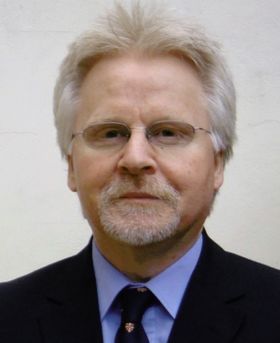
2024
Professor Maggie Smith
University of York, UK
Bacteriophage-host interactions in Streptomyces
“I am surprised and delighted to have been awarded the Marjory Stephenson Prize. It is an honour, and somewhat daunting, to be placed alongside winners of this prize from previous years. I want to thank all the people who worked in my research group and my collaborators; this prize wouldn’t have happened without them. Thank you also to the Microbiology Society for the prize itself and for the immense support it has provided over the years.”
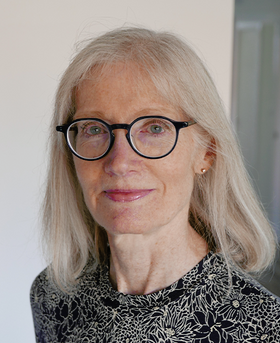
2023
Professor Sharon Peacock
University of Cambridge, UK
Sequencing Microbes for Better Human Health
"The Microbiology Society is an incredible organisation, and to have received a prize from them means a lot to me. But I am acutely aware that it’s a reflection of not just my work – anything I have achieved needs to recognise the efforts of many others, most recently the people who made up the COVID-19 Genomics UK (COG-UK) Consortium."
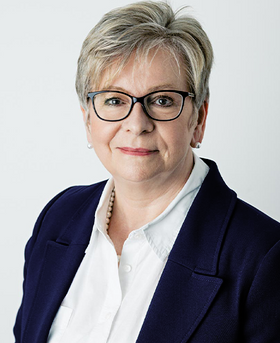
2022
Professor Geoffrey Gadd
University of Dundee, UK
Fungal biomineralization
"This is a great honour from the society I joined about 45 years ago with little idea that one day someone would think that I have made a contribution to microbiology! Of course, any contribution made has been achieved through the excellent members of my research team, and collaborations with many lifelong friends in the UK and internationally. I am delighted that our research on fungi, metals and minerals has been recognised in this way.”
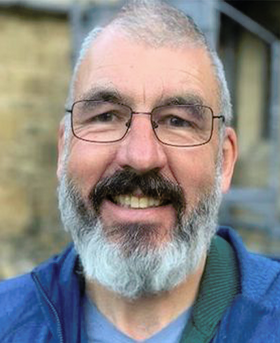
2021
Professor Martin Maiden
University of Oxford, UK
The application of population genomics to meningococcal disease prevention
“Having been associated with the Society since my undergraduate days, some 40 years ago, this recognition of my work could not mean more to me. Throughout my career, I have been very fortunate to work closely with inspiring microbiologists from around the world and this is a wonderful opportunity to thank my many colleagues and collaborators. I have strived to apply the highest-quality science to alleviating the impact of infectious diseases, while combining research with education at all levels. The need for the synthesis of these activities as great as ever and I shall do my utmost to use the award as a platform to further this goal.”
Image credit: Hertford College
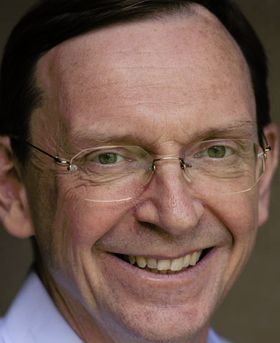
2020
Professor Julian Parkhill FRS
University of Cambridge, UK
Twenty years of sequence-gazing
“I am delighted and honoured to receive this prize from the Microbiology Society. Our work is fundamentally collaborative, and during my career I have been privileged to work with some of the finest microbiologists in the world, many of them members of this Society. Nothing I have done would have been possible without their help, and I am very grateful to them all. Since my PhD, coming to the Society’s meetings has been an essential part of my education and my research, and I am sure this will continue.”
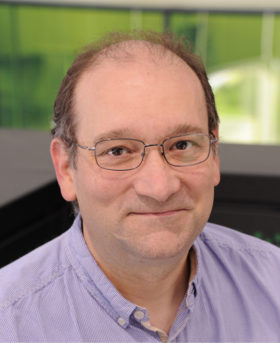
2019
Professor Gordon Dougan FRS
University of Cambridge, UK
Putting genomics into action
"This is a very special moment for me. I remember, as a second year PhD student, giving my first presentation quite nervously at a Microbiology Society meeting and the Society has really been embedded in my activities throughout my career. Now giving this Prize Lecture at the end of my career ties together nicely my time with the Society. This is a great opportunity and I would like to use it to acknowledge some of the people who have helped me get to where I am."
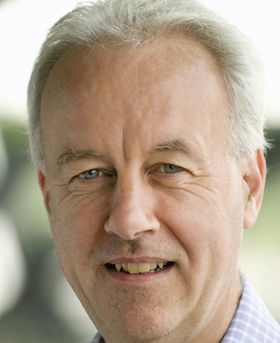
2018
Professor Geoffrey L. Smith FRS
University of Cambridge, UK
Vaccinia virus: a portrait of a poxvirus
“It is a great honour to receive this prize on behalf of all those who have worked in my lab. Marjory Stephenson was an inspiration: she made huge discoveries about microbial biochemistry, was one of the first two females to be elected fellows of the Royal Society, was a very rare female scientist at the University of Cambridge by the middle of the 20th century and had a glittering scientific career in a male dominated world. She remains an inspiration to all, and especially women, to have a career in science and retain the satiable ‘curtiosity’ of Rudyard Kipling’s Elephant’s Child.”
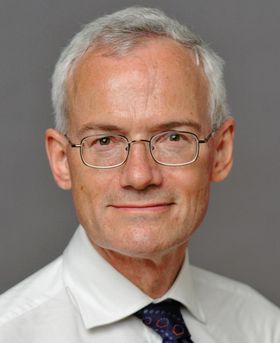
2017
Professor Stephen J.W. Busby
University of Birmingham, UK
Transcription activation in bacteria: ancient and modern
“I’m delighted and quite surprised. But what makes me most excited is that lectures to honour Marjory Stephenson go back a very long time – it’s very special to be asked to continue the tradition.”
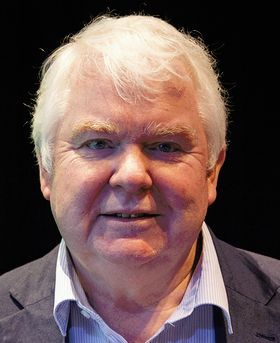
2016
Professor Steve Oliver
University of Cambridge, UK
Petri plates to Petri nets: the path to systems microbiology
"I've been a member of the Society since I was an undergrad student, so this prize means an awful lot to me. It is also, I hope, a recognition of the fact that studying microbes as model organisms continues to advance not only microbiology, but the life sciences as a whole."
Image credit: Steve Oliver
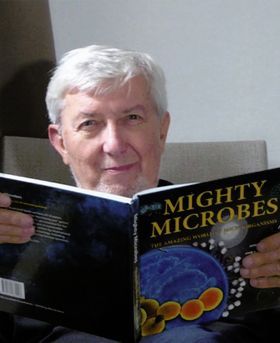
2015
Professor Robin A. Weiss
University College London, UK
What's the host and what's the microbe?
"It is an enormous priveldge to give the Marjory Stephenson Lecture. Thank you to my nominators and thank you for the invitation. Marjory Stephenson was a superb scientist, a great biochemist and it's very nice for the Society to recognise her."
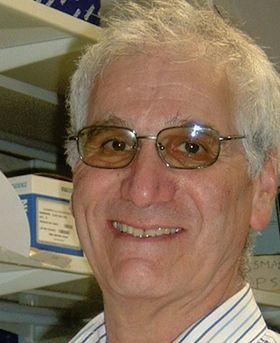
2014
Professor Laura Piddock
University of Birmingham, UK
Understanding the Basis of Antibiotic Resistance as a Platform for Early Drug Discovery
"I am absolutely delighted and honoured to receive this prize and really was very suprised to be nominated to be a winner and be awarded as well. I think it is really important that I acknowledge my team's hard work, their inspiration, their motivation and their committment. They continue to work really long hours and have made significant contributions to this area."
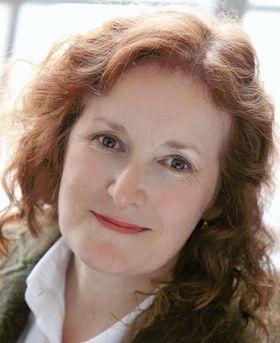
2012
Professors Yuan Chang and Patrick Moore
University of Pittsburgh, USA
Old Themes and New Variations in Human Tumor Virology
"We are both extremely honoured and it's humbling to receive this Prize in Marjory Stephenson's name. Her work did not only focus on anaerobic metabolism in bacteria, however this was not just her primary focus. She was also trying to understand more fully metabolism using that as a model system. We hope this work can convince you that viruses are very useful as model systems for looking at cancer so that we can understand not only viral cancers but also cancers that are not caused by viruses."
Image credit: iStock/kirstypargeter
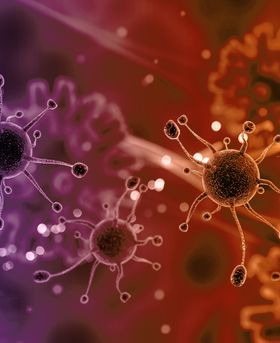
2010
Professor Jan Tommassen
University of Utrecht, Netherlands
Assembly of Outer Membrane Proteins in Bacteria and Mitochondria
Image credit: iStock/selvanegra
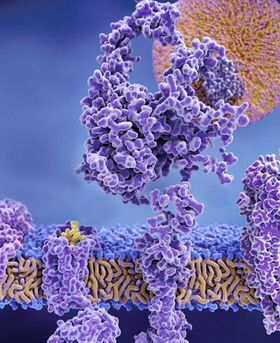
2008
Professor Alan Bernard Rickinson FRS
University of Birmingham, UK
Studies with an Oncogenic Virus: How to Survive a Lifetime with EBV
Image credit: iStock/Dr Microbe
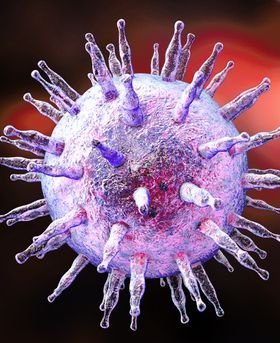
2006
Sir John Skehel FRS
Francis Crick Institute, UK
Invasion by Influenza Viruses
Image credit: iStock/Dr Microbe
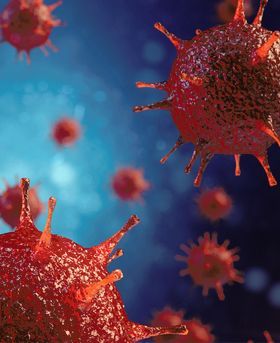
2004
Professor Stanley Falkow
Stanford University School of Medicine, US
Thoughts on Persistent Bacterial Infections
Image credit: SPL
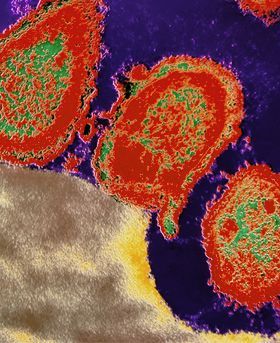
2002
Professor Stewart Cole FRS
Pasteur Institute, France
Comparative and Functional Genomics of Mycobacterium tuberculosis
Image credit: iStock/Dr Microbe
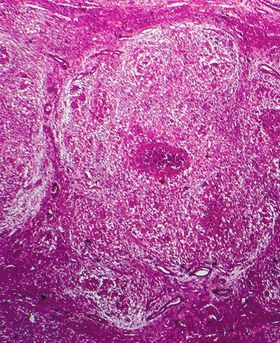
2000
Professor David Holden
Imperial College London, UK
In vivo Genetic Analysis of Salmonella Virulence
Image credit: SPL
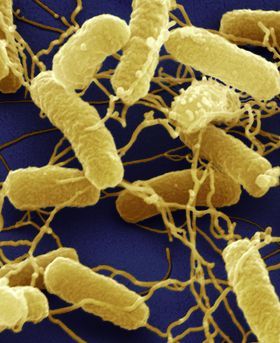
1998
Professor Rudolph Thauer
Max Planck Institute for Terrestrial Microbiology, Germany
Biochemistry of Methanogenesis
Image credit: iStock/Mohammed Haneefa Nizamudeen
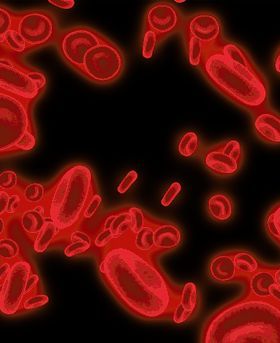
1996
Professor Keith Gull FRS
University of Oxford, UK
Oneness and Otherness in Eukaryotic Microbes
Image credit: iStock/ClaudioVentrella
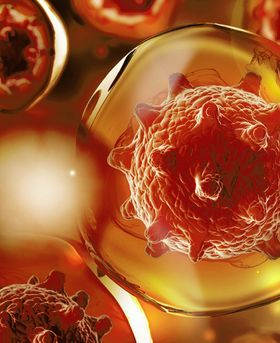
1994
Professor Anthony (Tony) P.J. Trinci
Evolution of the Quorn Myco-protein Fungus Fusarium graminearum
Professor Anthony (Tony) P.J. Trinci was a former President of the Microbiology Society.
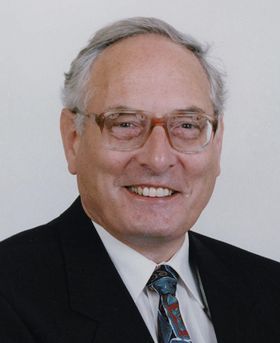
1992
Professor John R. Guest
University of Sheffield, UK
Oxygen-regulated Gene Expression in E. coli
Image credit: SPL
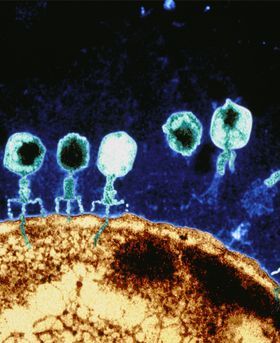
1990
Sir Paul Nurse FRS
Francis Crick Institute, UK
On Fission
Sir Paul Nurse, a Nobel Prize winner, was also awarded the Fleming Prize in 1984 for his research on the Cell Control Cycle in Yeast.

